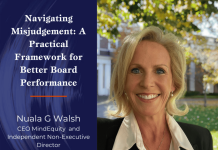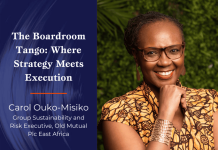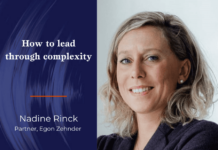The podcast and the article are brought to you by The Better Boards Podcast Series.
The board is a powerful asset for tech start-ups, with board members providing access to a wide international network, industry know-how, and strong expertise in building new ventures. Yet, since the interaction takes place behind closed doors, there is a lot of uncertainty about how the CEO and director dynamics play out. How open is the communication between both sides? Where are investor expectations not being met? How frequent are challenges and vetoes?
In this podcast, Dr Sabine Dembkowski, Founder and Managing Partner of Better Boards, discusses tech start-up boards with Yael Benjamin and Tzahi (Zack) Weisfeld.
Zack specialises in re-inventing large multinational tech companies through open innovation with start-ups. He is currently Vice-President and General Manager of Intel Ignite, Intel’s accelerator program. Previously, he was the GM for Microsoft for start-ups (110 countries) and is a serial entrepreneur and investor.
Yael is the Founder/CEO of research firm start-up Snapshot, which collects, analyses, and shares data about the tech community and the entrepreneurs who drive it. Her research is based on data collected directly from start-up Snapshot’s global community of founders and investors, covering key entrepreneurial topics, such as boards of directors, fundraising, founder mental health, investor relations, compensation, and new technologies.
“One of the main conclusions of the research is the focus on communication, or we’ll call it the lack of communication, and transparency between tech CEOs and their directors”
Yael has fresh insights from a survey of over 200 CEOs of tech start-ups and their board members, designed to understand the dynamics of what happens behind the closed doors of the boardroom in young, privately held tech companies. Her research finds one of the biggest issues is communication. Some 61% of the CEOs say they’re not fully transparent with their board. Instead, she notes, they are waiting to report difficulties, sugar coating challenges, and keeping themselves in a fundraising or sales mode with their board of directors rather than showing vulnerability or authenticity.
According to Zack, this lack of vulnerability and authenticity may be driven by a fear of criticism or judgment. Many tech founders populate their boards with investors – the same investors they just sold on the company’s potential and their own personal potential to deliver on big promises. They don’t want to reduce the confidence of current or potential investors by showing vulnerability or weakness, as this may impact their future ability to raise funds.
“The lack of transparency is leading to a situation where CEO’s do not utilise the value of the board”
Yael’s research finds the lack of transparency and trust leads to extra challenges and diminishes the value board members can bring. Some 43% of the CEOs in Yael’s survey say they have a difficult director on their board. These difficult directors are pushing back on management decisions, fuelling heated debates, and really using veto rights. One particularly alarming statistic to Yael was that 28% of start-ups said their board exercised at least one veto. She feels there needs to be discussion around whose responsibility it is to prevent the vetoes and about the leap many CEOs and founders need to make between raising a lot of money and understanding how to manage board situations.
“There’s a difference between first-time founders and people trying to manage or work with a board for the first time versus the more experienced founders that have a better handle on the governance of their start-up”
Zack feels the experience is a large and underappreciated factor here, both on the side of CEOs and founders and also on the side of board members. With board members, you see big differences between people who have been operators or run their own companies before compared to professional investors. With CEOs and founders, especially first-timers, it is not always clear they have enough experience and resilience to work with their boards effectively.
Layer in the personalities and financials involved, and it just gets more complex. The responsibility to prevent conflicts and vetoes is shared. Zack thinks both parties should work towards transparency, open dialogue, and mutual respect.
“CEOs that are young and inexperienced need to get the right kind of mentorship”
Zack feels it is important for young and inexperienced CEOs and founders to find advisors who can be great sounding boards and resources for managing board situations. He feels consultants are not a good choice here – it’s better to get a practitioner with first-hand experience of the emotions, operations, and intricacies. He screens for people who have those skills but don’t actively manage a company so they have enough time and bandwidth to help others.
He also feels you need to find someone you are comfortable sharing everything with and fulfilling on that transparency element. This person can help you bring that same transparency to your board conversations. This full transparency will help with something Zack feels is a major sticking point – you never want to surprise your board! You want them to be prepared for meaningful conversations. Doing that well, which a strong advisor can help with, will strengthen the company and may even impact future valuation.
“A great way to help first-time or younger founders is to have an independent board member”
As founders seek advisors, Yael’s research shows that 60% of start-ups do not have an independent board member. They populate their boards with investors, but these investors have a naturally biased interest in how the company develops, which can impact their behaviour. As a result, Yael feels adding an independent board member can bring in someone unbiased who can provide different advice and help the young founder effectively manage the board and board relationships.
Zack recommends joining programs and accelerators to find independent board members since these programs can help create connections where there’s the right mix of chemistry and expertise. He also recommends young founders and first-time CEOs ask everyone they can for introductions, attend local industry events, and make an effort to attend broader related conferences and events to expand their circles and connect with a wider variety of people.
“Investors really overestimated the value they’re providing versus what those CEOs said they’re receiving”
As an additional consideration when looking at investors as board members, Yael’s research finds there’s a large imbalance in the perceptions of the value of advice and guidance. CEOs and young founders don’t feel they receive great value from their boards.
According to Yael, trust, transparency, and comfort levels are factors in this. For example, while 81% of directors said they want CEOs to be transparent and give them tasks to help with, only 30% of CEOs said they would feel comfortable doing that. They feel afraid to ask. Having independent board members who are not investors can help young founders build their comfort levels and trust in going to their boards for help. In the future, this may unlock more board value and fix the value perception issue.
“The reality is that VC partners are often on too many boards”
Considering Yael’s data and his own experience, Zack feels an issue not often talked about is that VCs and investors are on too many boards. This dilutes their time and reduces the attention they can give to any one company. Early-stage founders may not know how to navigate around this or how to frame their requests to get the most from extremely busy board members.
“When we talked about selecting your advisor, your mentor, you need to select a partner that’s going to invest in you”
At times, the only thing a VC has to offer is their cash. This means start-ups need to look for someone else to serve in that mentoring or advising capacity very intentionally.
Zack feels selecting this person requires extreme care and due diligence. He recommends talking with other founders to see who they observe bringing value, considering angels as they may be more engaged than pure VCs, and considering the freshness of certain experiences to determine if a partner can truly bring the most market-relevant advice forward. He says it is not unlike dating – you want to select a partner willing to invest in you on multiple levels and someone you have the chemistry with to partner up with for a long time.
The top takeaways from our conversation are:
- Yael notes founders and CEOs have to be mindful about how they communicate with their board of directors. Communication is going to prevent challenges and help access value from the board membership. If a team of advisors is needed to manage these communications, it’s okay to put that in place to enable more effective communication.
- Zack wants to remind everyone to choose your mentors, VCs, and board members as carefully as you can – with at least as much care as you would a co-founder or spouse.
- Zack would also like to remind CEOs and founders that they are in control of their companies, not the boards. While boards play advisory roles, the ultimate responsibility for managing the firm lies with the CEOs and founders.
- Finally, Zack notes when it comes to boards, mentors, and advisors, adopt a “help them help you” approach. The more friction you can take out of the process, the more likely you are to get the valuable help you need from busy, well-connected people.
Don’t forget to subscribe never to miss an episode of the Better Boards Podcast Series. Available on their website, Apple, Spotify or Google.
To find out how you can participate in the Better Boards Podcast Series or more information on Better Boards’ solutions, please email us at info@better-boards.com.





































